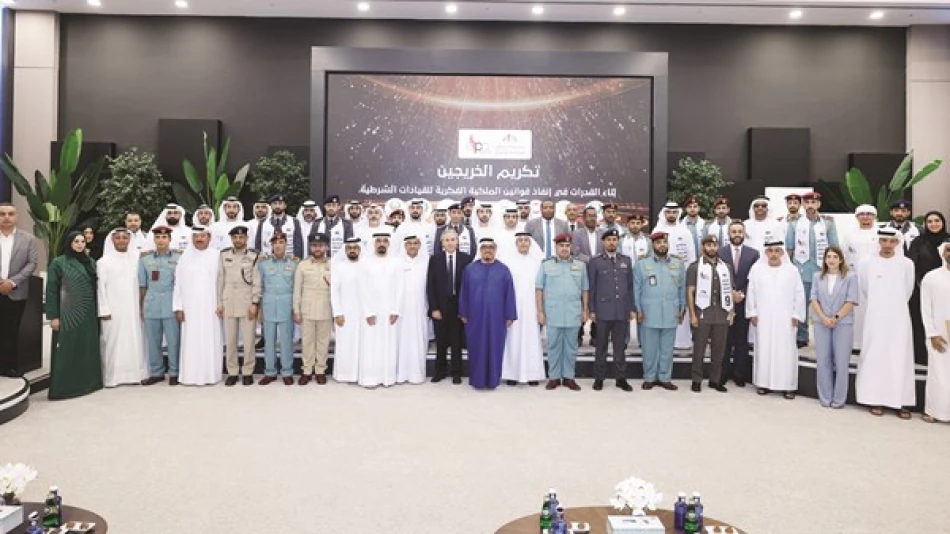
47 Graduates of Intellectual Property Enforcement Capacity Building Program Celebrated
Dubai graduated 47 professionals from police, government, and private sectors in a national intellectual property enforcement program, marking another step in the UAE's push to become a regional leader in protecting creators' rights and supporting its knowledge-based economy.
The graduation ceremony took place at Dubai's Police Officers Club under the patronage of Lieutenant General Dhahi Khalfan Tamim, Deputy Chief of Police and Public Security in Dubai. The event celebrated two programs: the National Capacity Building Program for Intellectual Property Law Enforcement and the Intellectual Property Expert Diploma.
General Khalfan emphasized that protecting intellectual property goes beyond legal requirements. "Protecting the rights of creators and innovators isn't just a legal responsibility, but a civilizational value that reflects how much society respects thought and creativity," he said during the ceremony.
The UAE has been investing heavily in IP protection as part of its broader economic diversification strategy. The country wants to position itself as a hub for innovation and knowledge-based industries, which requires strong legal frameworks and trained enforcement personnel.
Dr. Abdul Qudoos Abdul Razzaq Al Obaidly, President of the UAE Intellectual Property Association, noted that this program represents unique collaboration between local authorities and the World Intellectual Property Organization (WIPO). The training equipped 25 police officers with specialized skills in IP law enforcement, while 22 others completed the IP expert diploma.
Since its launch, the diploma program has graduated 126 professionals total. These graduates now work across various sectors, helping build what officials call a "culture of IP respect" throughout the UAE.
The program's success reflects broader regional trends. Middle Eastern countries are strengthening IP protections as they compete for international investment and try to build domestic innovation ecosystems. Strong IP enforcement helps attract multinational companies and gives local entrepreneurs confidence to invest in research and development.
Samer Al Tarawna, representing WIPO, praised the UAE as a key regional partner. He said the program offers an advanced model for building police and legal capacity to protect IP rights.
The ceremony also recognized strategic partners including Dubai Courts, Dubai Customs, the Trademark Owners Council, and the UAE Journalists Association. These partnerships show how IP protection requires coordination across multiple government agencies and private sector groups.
For businesses and investors, this type of capacity building matters because it creates more predictable legal environments. Companies are more likely to bring valuable intellectual property to markets where they trust local enforcement capabilities.
Most Viewed News

 Layla Al Mansoori
Layla Al Mansoori






